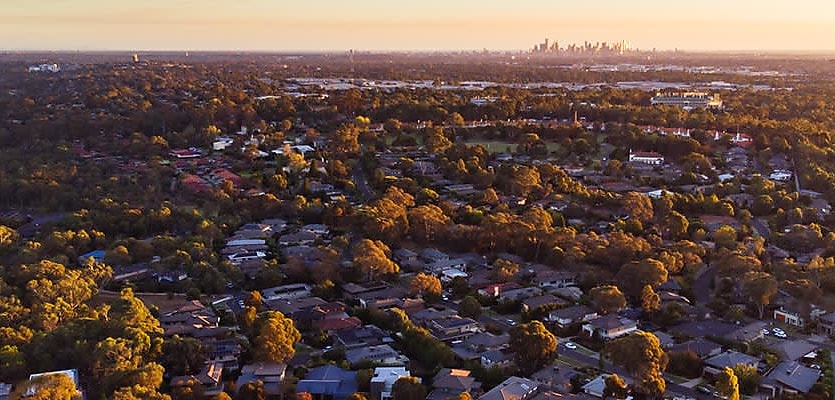New data has reaffirmed that the property market has retained its resilience despite the large economic wobbles in the June quarter.
CoreLogic’s quarterly property update has revealed Australia’s dwelling market fell by just 0.8 of a percentage point over the June quarter, despite some economists saying the $7 trillion asset class could fall by as much as 20 per cent.
The capital cities saw a 1.1 per cent reduction in house prices while regional properties grew by 0.3 of a percentage point during the quarter.
“The impact of COVID-19 has been an enormous negative shock to the economy. However, housing market value declines were relatively mild over the June quarter. This is thought to be a function of record-low mortgage rates, home loan repayment deferrals and various demand-side government stimulus for owner-occupier purchases,” CoreLogic stated.
However, CoreLogic noted not all capital cities are behaving the same way as the health crisis impacts each city differently.
“Melbourne saw the sharpest decline in values of the capital city markets, led by declines in the inner east and inner regions. Inner-city areas have been particularly impacted by the pause on international migration and an acute decline in employment across tourism and hospitality,” CoreLogic explained.
Some smaller capital cities continued to experience an increase in dwelling market values over the June quarter. For example, Adelaide, which has historically shown very little volatility, saw a 0.7 of a percentage point increase during the quarter.
Australia’s capital remained a high growth market at the start of the pandemic, with large increases concentrated across houses. Furthermore, the ACT rental market saw a decline in value, as lower-income household employment has been more impacted by the pandemic.
Looking forward, CoreLogic predicted downward pressure on the housing market.
“Despite divergent performance, the renewed restrictions across Victoria are likely to put downward pressure on economic performance nationally, which will ultimately impact purchasing capacity for housing, and prices,” CoreLogic said.
“For this reason, it is anticipated that the housing market decline will become more broad-based in the second half of 2020.
“The trajectory of the market is largely dependent on overcoming the current health crisis, which would allow the flow of people and economic activity to resume. A housing market recovery is unlikely until borders reopen and the labour market makes a consistent recovery.”







You are not authorised to post comments.
Comments will undergo moderation before they get published.